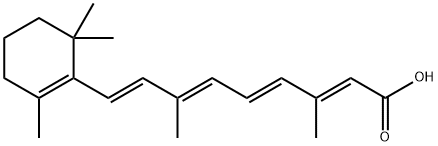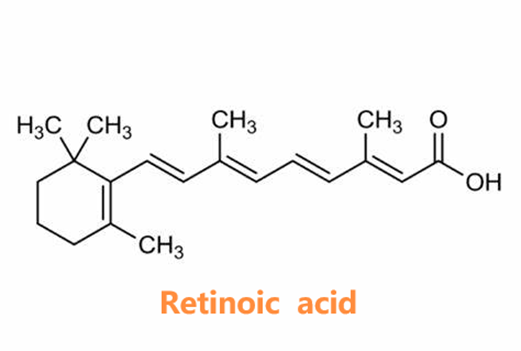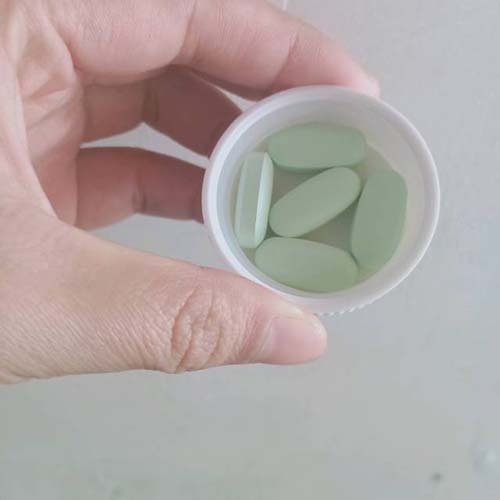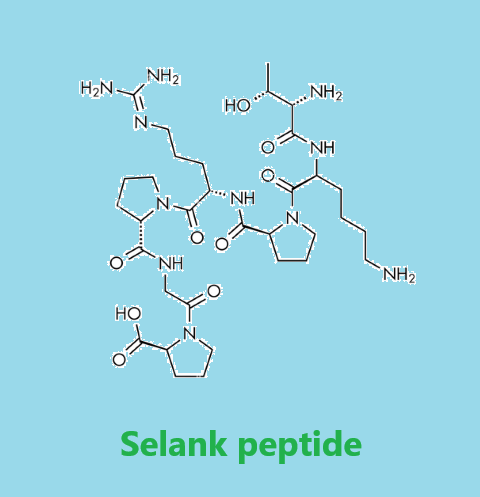Can retinoic acid be used to treat cancer?
Yes. Retinoic acid (RA), also known as all-trans retinoic acid, ATRA, retinoic acid and vitamin A acid, is an endogenous signaling molecule that regulates many developmental processes. RA is synthesized in vivo from vitamin A and has the effects of promoting cell growth and development (especially embryos), regulating bone growth and inhibiting cancer cell proliferation.
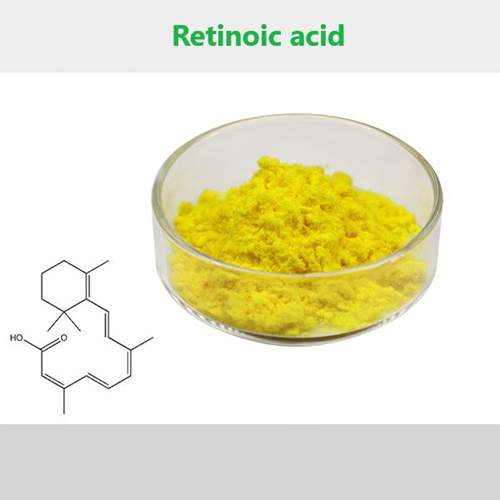
All-trans retinoic acid (ATRA) can synergize with tamoxifen to cause cell cycle arrest and apoptosis, inhibiting ERα-positive ovarian cancer in vivo and in vitro. Its mechanism of action found that ATRA can inhibit genes related to the ERα signaling pathway and enhance the sensitivity of ERα-positive ovarian cancer cells to tamoxifen, thereby determining the efficacy of tamoxifen and ATRA combined treatment of ERα-positive ovarian cancer.
Studies have shown that retinoic acid has a short-term effect on the proliferation of SH-SY5Y neuroblastoma cells. It was observed that short-term retinoic acid treatment can improve neurodegenerative parameters, but reduce proliferation by inducing mitochondrial autophagy and apoptosis in SH-SY5Y neuroblastoma cells.
Retinoic acid preparations and retinoic acid receptor genotypes also have effects on colorectal cancer proliferation, differentiation, and stemness. Retinoic acid (RA) receptors and other RA signaling components are selectively expressed in ALDH+ SCs, suggesting that RA signaling occurs through ALDH+ SCs. HCT116 and SW480 CRC cell lines with RA receptor mutations exhibit resistance to all-trans retinoic acid (ATRA). In contrast, HT29 CRC cells with wild-type RA receptors are sensitive to ATRA. However, the three cell lines exhibited similar dose responses to liarozole, an inhibitor of the ATRA metabolizing enzyme CYP26A1. This finding suggests that inhibition of ATRA metabolism can increase intracellular RA levels in these three cell lines in a similar manner, inducing antiproliferative effects, regardless of RA receptor mutations. This study found that upregulating RA signaling can reduce cell proliferation and increase differentiation.
In conclusion, Retinoic acid has been shown to be of some benefit in the treatment of certain types of cancer. However, it still lacks clinical feedback, so its application in cancer requires a lot of data support.
References:
[1] RUI XU. Combined treatment of All-trans retinoic acid with Tamoxifen suppresses ovarian cancer.[J]. Cancer Chemotherapy and Pharmacology, 2024: 259-270. DOI:10.1007/s00280-024-04671-7.
[2] DILARA AYDIN. Short-term effects of retinoic acid on the proliferation of SH-SY5Y cells via mitophagy and apoptosis.[J]. Cellular and molecular biology, 2024, 70 11: 64-70. DOI:10.14715/cmb/2024.70.11.9.
[3] HUNSU V O, FACEY C, BOMAN B M. Abstract 266: The effects of retinoid agents and retinoic acid receptor genotype on proliferation, differentiation, and stem cells in colorectal cancer[J]. ACS Chemical Health & Safety, 2024, 16. DOI:10.1158/1538-7445.am2024-266.
You may like
Related articles And Qustion
See also
Lastest Price from Retinoic acid manufacturers

US $0.00-0.00/kg2025-07-14
- CAS:
- 302-79-4
- Min. Order:
- 1kg
- Purity:
- 97%-103%; USP
- Supply Ability:
- 500KGS

US $0.00/kg2025-04-27
- CAS:
- 302-79-4
- Min. Order:
- 1kg
- Purity:
- 0.99
- Supply Ability:
- 1000kg
